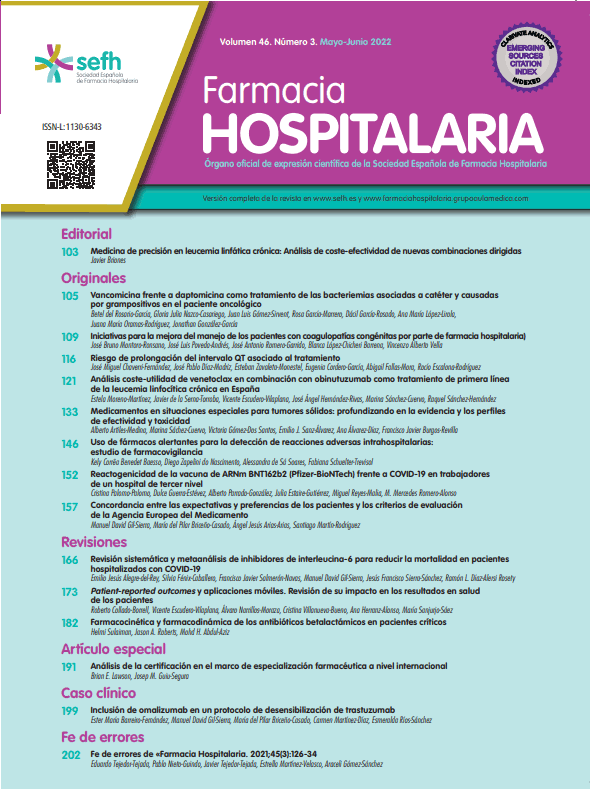In recent years, there has been significant progress in the understanding and treatment of immune-mediated inflammatory diseases, in particular, psoriasis. This has led to the emergence of new concepts and therapeutic approaches, of which we highlight the following: super-responder patients,1 empowerment,2 and persistence.3 The latter concept has featured prominently in the publications of recent congresses of the Spanish Society of Hospital Pharmacy (SEFH) and its European counterpart (EAHP). At these events, 25 poster presentations included the term persistence, but only 29% and 33% defined the concept partially or completely, respectively. A previous review4 has reported conflicting data concerning the concepts of adherence and persistence, suggesting the need for explanation by specialists in the field. Within the field of psoriasis, hospital pharmacists and dermatologists reached consensus on the definition of persistence5 to help make its measurement as accurate as possible, thereby allowing us to evaluate the efficacy, safety, and adherence to various psoriasis therapies by treatment line. This definition combines the opinions of both professional groups. Persistence was defined as the period of time between treatment initiation and discontinuation or the time that a drug remains an appropriate option for the patient. The experts also agreed that discontinuation is the definitive suspension of a treatment: however, the dermatologists considered discontinuation to be the date of the last administration, whereas the pharmacists considered it to be the last day of dispensing and up to the day the dose was not administered. All the experts agreed that persistence is an indicator of treatment success, which is influenced by efficacy, safety, adherence, and patient satisfaction. From the pharmaceutical point of view, emphasis is placed on the time that medications continue to have an effect, as well as on patient adherence, allowing us to investigate and understand patterns of drug-taking behaviour, in the sense that associations should be found between low persistence and non-adherence. Regarding patient satisfaction, measures of quality of life were included, such as the Dermatology Life Quality Index (DLQI). Efficacy loss was defined as achieving an absolute score of more than 5 on the Psoriasis Area and Severity Index (PASI) or failing to reach PASI 75.
Based on the published articles, the concept needs to be improved to include measures of efficacy, safety, quality of life, treatment satisfaction, and adherence to justify continuation of treatment by the patient. Similarly, findings suggest that an absolute PASI equal to or less than 3 and achieving PASI 90 or greater would be indicative of efficacy. Furthermore, a rating of 0 or 1 on the DLQI, pending incorporation of the Psoriasis Symptoms and Signs Diary in the case of psoriasis, and adherence of over 90% (applicable in this disease) would be indicative of good quality of life.
In conclusion, the concept of persistence awaits improved definition and consensus by specialists in multidisciplinary teams providing care to patients with psoriasis. There is a need for studies that address this issue and highlight a universally agreed concept for calculating persistence in relation to given psoriasis treatments. The definition of this concept should be agreed between pharmacists, dermatologists, and patients, given that persistence in treatment is related to optimal efficacy, good tolerance, adequate adherence, and patient satisfaction.
FundingNone declared.







